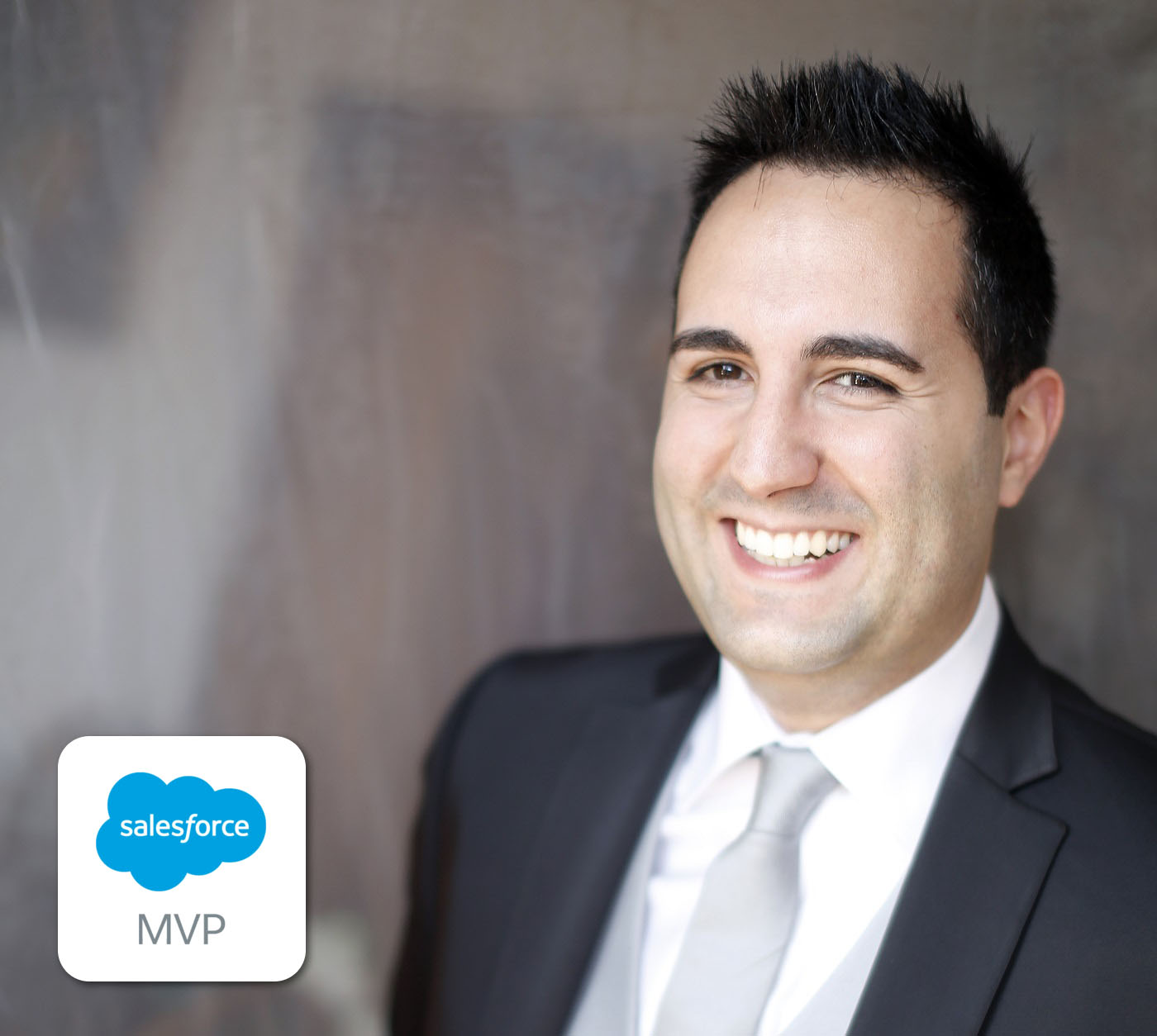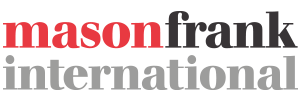
As a Salesforce professional, you should always be looking for ways to progress your career and become more proficient on the Salesforce platform. In this article, 18x certified Salesforce MVP Enrico Murru gives his 10 best Salesforce Developer tips to help you progress to the peak of your profession.
“Am I the best Salesforce Developer I can be?”
This is a question all Salesforce Developers should be asking themselves. If you said “Yes”, well… you don’t need to read this post as you may be in the “Olympus” of coders.
If your answer is “No”, welcome my friend, keep reading this post. I have some tips for you, based on my experiences, that may lead you to the right trail.
I’ve always felt like I’ve never achieved anything to the top level, and I guess this drove me to overcome my limits and achieve a lot in my personal and professional life.
If you are in the circle of developers that believe they can empower their skills day after day, you are using a mental process that I call “Continuous Self-Improvement” (CSI, isn’t it cool? I guess I’ve not invented anything, but I love giving names to stuff). I even call it the “John Snow syndrome”, because your student mentality means you’re a coder who feels like they “know nothing”.
1. Curiosity
This is the first sign you are an amazing developer.
Talking about the Salesforce ecosystem, this CSI is an important part of your daily job. With three releases a year and new products added to the Salesforce ecosystem, there’s a bunch of stuff to learn, new features released, new APIs, and new hacks. Believe me, if you don’t follow the white rabbit you will quickly get lost in the amount of information.
I understand that you have a social life and your big question is “how do I get to learn so much, given that I’m busy with my work?”. You don’t need to know every how & why of every release/new product, but you need to know that a feature is there and that a new product has been rolled out. This makes an enormous difference; it’s what separates a good developer from an amazing developer. This way, before you use the new features, you know it’s there and can take few hours of study to master it (Trailhead and community blogs are your friends).
After 10 years in the coding world, I still try to learn a thing a day, whether it’s a new Apex method or a new product or a new library.
Also remember that you are not alone. One of the most important lessons I learnt few years ago (when my career finally exploded) is that I was not working alone: I was a one-man SWAT squad, but I understood that even I had limits in how many tasks I could complete alone.
2. Your team
You need your team at work and your online trailblazer friends: the second sign you are an amazing developer is how you relate to your team.
Do you have a doubt? Ask your colleagues, share your work load, do pair programming, you can always learn from your friends.
No luck on your issue? Ask the Trailblazer community. You’ll be surprised how strong and helpful the Salesforce Ohana can be, with its diffuse and diverse knowledge spread all over the world.
3. Code quality
The third sign is code quality.
How do you get to it? Experience. Have you ever looked at the code you wrote 3 months ago and thought at first “who the heck wrote this awful stuff?” Cheers! Your code quality has improved and never stops to improve. The fact you answered “no” to my initial question proves you’re always striving to improve.
4. Fight against boredom
The fourth sign is boredom identification.
It doesn’t seem a positive quality, does it? Wrong! Boredom is an important signal that what I’m doing is not stimulating my brain anymore: this can happen quite often or rarely, depends on your attitude, but use it an as important alarm for your daily work.
An absence of stimulus leads to less quality, less interest, less attention.
Is there a cure to boredom?


5. Side projects
Sure, I’m talking about the fifth sign, that is have a side-project where you can have fun, improve your side skills, and learn new technologies.
You may even consider launching a start-up in the future: a new personal project (or even company-wide project, some companies allow you to have a personal project that you can code on your working hours) improves your enthusiasm and engages your grey matter, making you approach all other tasks you have with refreshed energy.
6. Evaluate hurry vs quality
Another important sign, the sixth sign, you are an awesome developer is the skill to evaluate fast solutions versus quality solutions.
How many times has your tech lead asked you to solve a problem as quickly as possible? You’re expected to code the best fix, but you may be unsure if you have to use the fastest way (with low quality) or the best one (high quality).
The choice depends on your project quality policies (which may be strict or not) but also on your customer needs and hurry.
Sometimes you can take your time to fix the issue, other times you need to focus on the resolution time (using a dirty way) to make the customer happy. In the latter case, consider a small amount of time to clean the dirty solution when the emergency is over.
This skill requires a good amount of experience you’ll certainly make in your career path.
7. Experience
And now comes the seventh sign (don’t worry, it’s not about the apocalypse) which is experience. Much of the above signs are related somehow to experience and work itself it is.
Nobody is born full of knowledge. Indeed, you first learn to crawl, then walk, and after that you run and, if you gain enough experience, do incredible stunts.
Coding is no different. You start from the bases with an “Hello World!” script, then you code a virtual reality world, but it takes a while to complete the path. All it takes is for you to blindly jump into your projects and take everything you can from them, good and bad, fun and boredom, happiness and sadness, tranquilly and anxiety (anxiety is a powerful fuel for most coders).
In my opinion, experience is the ability to stay on your feet after a big punch to the face (where the punch is the difficulty of the project you are working in).


The Mason Frank Salary Survey provides a unique insight into the Salesforce Ohana. Complete the form below and receive your PDF report in seconds.
8. Planning
With experience comes a great planning skill, the eighth sign.
You are assigned tens of tasks, with a different difficulty, deadline, and skillset required. You plan your developments and manage to succeed by handling your time effectively.
This is good for you because you can limit your stress levels and prevent anxiety from arising (especially when deadlines are close).
In the eyes of your boss/project manager, you are highly productive and efficient, and you’re able to complete more than one task at a time by optimizing your working time.
To help you in your different tasks (that may spam through different projects/activities) I suggest adopting your own project management tool (there are a lot of free tools online, so take a simple search to choose the best fit for your needs). This will help you manage:
- work tasks: e.g. remember to check that Apex class which doesn’t perform in production
- learn tasks: e.g. I read about Apex Continuous Framework and I want to know everything about it
- side-project tasks: e.g. complete the login page of my new awesome online portal
- ideas: e.g. today I needed a script to match users and related managers, should automate it using NodeJS
You’ll still be using the official task management tools provided with your projects, but this way you never lose any other extra task (especially if you are forgetful).
9. Personal Knowledge
The ninth sign is related to how you preserve your knowledge.
The first sign was related to knowledge, and your knowledge is precious for several reasons:
- you’re not a computer, so you cannot store everything on your brain
- sometimes you jump into an important blog/reference guide (by looking for other stuff online) but you want to save it for later (in a structured way, so it’s easier to find)
- technical choices need to be explained to customers/partners, and the best way is to quick-find the rationales. This is extremely easy if you keep collecting and preserving your findings
- if you’re a blogger, this is hot material for your next blog post
- you can create your own scripts gallery that you can re-use whenever necessary
- list products/services that can come handy in the future
How to achieve this?
Some use simple text files (in Mark Down syntax), others use Word/Excel files. I’ve seen highly structured Git repositories with tons of scripts and readme files.
I use a free wiki/collaboration tool (e.g. Quip) in an “always open” tab on my browser, that I can use whenever I read/do something interesting that needs further inspection or highlights.
I even created a Salesforce app to host handy scripts (that never saw an end). This could be your next side-project!
10. Resilience
A quick search on Google states that resilience is “the capacity to recover quickly from difficulties; toughness.” In other words: never give up!
Being a developer is a tough job. It isn’t like spending whole days under a mine, but it can be hard to fulfill requirement after requirement and indulge your “lovely” customer. Sometimes you feel all alone and lost fighting against Goliath, but you can be the David and do great things for your company/project by never surrendering and showcasing your extraordinary coding skills for the sake of your team, like an amazing developer can do!


Enrico Murru is an 18x certified Salesforce MVP and editor at the blog Nerd @ Work. As well as sharing his knowledge with the Salesforce ecosystem, Enrico is the organizer of the Milan and Cagliari Salesforce Developer user groups.

